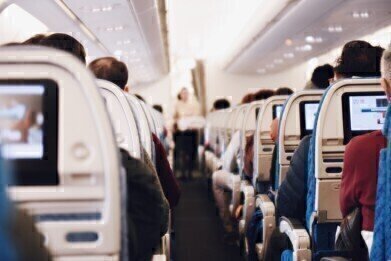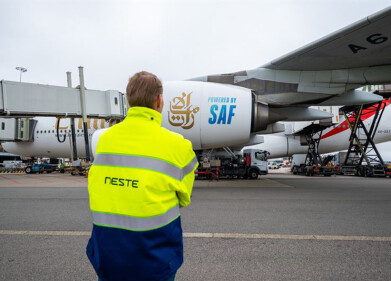Fuel for Thought
Will Airline Passengers Benefit from Oil Price Drop?
Mar 29 2015
With oil prices at a low of around $48 a barrel as of March this year, you would expect that consumers in the travel industry may reap some of the benefits. There are many benefits, as discussed in this new story: What Are the Pros & Cons of Plummeting Oil Prices? However, despite cheaper crude oil prices, the savings are not being passed onto airline travellers.
There is no doubt that airlines are benefiting from cheaper fuel costs, but these savings are being funnelled elsewhere. This is because airlines base their prices on demand and not cost.
Jeff Klee, chief executive officer of CheapAir.com, an online travel agency, explains: “The reality is airlines don’t price their flights based on their cost. In the short term, they price it based on demand. Unless demand changes, just because they’re paying less [for fuel], they’re not going to pass that savings on unless they have to. And they don’t right now. People are traveling and the flights are full.”
Jet fuel does represent 30% of airline costs, so with prices for oil remaining low, airlines are undoubtedly very happy. It is estimated that due to low oil prices, airlines could increase their profits by $6 billion in 2015 alone. A huge amount when you consider that airlines spend around $30 billion on jet fuel each year.
Not all airlines are making a huge profit however. Due to the ever-changing nature of crude oil pricing, some companies try to offset this by using derivatives contracts. Derivative contracts use the underlying performance of an asset, such as oil, with the purpose of insuring against price movements (hedging).
A common hedge is a “costless collar”, in which airlines cap and put a floor on prices. Should prices rise above the floor, the oil firm pays the airlines. If prices fell below the floor, then airlines would pay the oil firm. If the floor is set at a reasonable price for both sides, the net cost is zero and neither party faces a penalty.
Frank Werner, an airline expert who works at Fordham University’s Schools of Business, explains that these hedges work best when there are no drastic price swings.
“Anyone who constructed a hedge where they were willing to pay a minimum price – [but did not expect prices to] drop below there – was stuck with the higher fuel prices. These became very expensive hedges,” he said.
The huge price drop in crude-oil meant that many airlines who opted for hedges were stuck with higher oil prices. Typically US airlines do not tend to hedge much of their jet fuel. However, many Asian airlines have already stated that they are locked into these contracts for several months.
The problem for passengers after cheap seats is that airlines don’t need to slash costs in order to sell the seats. In fact, lower jet fuel costs can even increase seat capacity, by increasing the flying time of older aircraft.
Experts agree that low oil prices do not equate cheaper seats. Instead, only a fall in demand for seats will see the airlines responding with cheaper prices.
Digital Edition
PIN 25.1 Feb/March
March 2024
In This Edition Safety - The technology behind the ION Science Tiger XT - Safety with ammonia and LOHCs as hydrogen carriers Analytical Instrumentation - Discussion on new tribology te...
View all digital editions
Events
Apr 28 2024 Montreal, Quebec, Canada
Apr 30 2024 Birmingham, UK
May 03 2024 Seoul, South Korea
May 05 2024 Seville, Spain
May 06 2024 Riyadh, Saudi Arabia


















